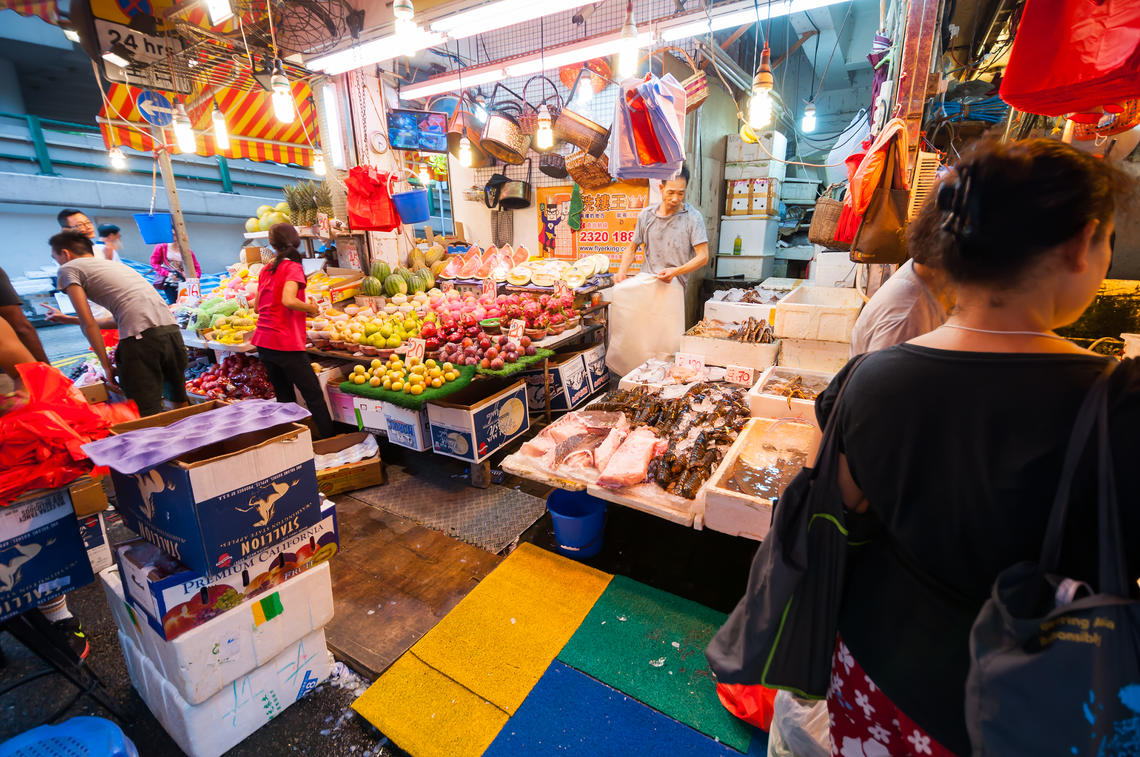
What is One Health?
One Health in Action
It is early morning at the Huanan Seafood Wholesale Market in Wuhan, China. A woman arrives at the stall of her favorite poultry vendor. She likes this market because she can touch, squeeze, and smell the produce and meats she is interested in buying. She likes her food fresh and doesn’t trust refrigeration, so she shops at this market every day, sometimes even twice a day. She can buy fresh produce without limp leaves, plump live chickens with bright eyes, and live fish from tanks. On special occasions she can also buy live snakes or turtles, but they are too expensive to purchase very often. She will buy her dry goods and processed foods at a nearby modern supermarket, but for her meat and produce she prefers the prices and fresh quality at this traditional market1


In December 2019, a cluster of severe acute respiratory syndrome-like (SARS-like) cases in patients associated with the Huanan Seafood Market was found to be caused by a newly identified coronavirus2. Most of the emerging and re-emerging infectious diseases in people are zoonotic infections, or infectious diseases that originate from animals and ‘spillover’ to infect people. While disease emergence is inherently unpredictable, a new disease emergence like COVID-19 was foreseen3. Early studies investigating the genome of this novel coronavirus, SARS-CoV-2 or COVID-19 showed that it was closely related to a corona virus of bats4.
Horseshoe bats are likely the primary reservoir but an intermediate host may be responsible for the spillover of the virus to people. In October 2019, two Malayan pangolins from the Guangdong Wildlife Rescue Center of China had died from pulmonary fibrosis and frothy pulmonary edema. A corona virus recovered from the lungs of was shown to have 91% genomic similarity to COVID-192. Pangolins, or scaly anteater, are threatened by poaching and habitat loss. Pangolin meat is considered a delicacy and the scales are used in traditional medicines. Habitat loss and increased exploitation of wild animals through hunting and trade favours increased animal-human interactions and virus transmission between wildlife and people3. Whether the Huanan market and pangolin are the sources of COVID-19 is still under debate but the rapid human to human transmission of the virus and the global movement of people, ensured its spread around the world to develop into a pandemic and the greatest public health threat of our times.

Why is One Health Important?
Infectious diseases emerge from the interaction of hosts, pathogens, and the environment. No single discipline is capable of untangling the anthropology, evolutionary biology, virology, ecology, and epidemiology of disease emergence; it requires the expertise of many disciplines. Greater understanding of complex systems can be achieved when scientists from different fields work together and develop integrated frameworks that transcend their disciplinary perspectives. Knowledge of the interrelationships inherent in complex problems can also lead to better solutions, solutions that will not further strain wildlife populations, nor close wet markets that will impose excessive restrictions on cultural expectations and compromise the food security of a population. Instead, transdisciplinary collaborations will work to find better evidence-based solutions that can prevent zoonotic disease transmission.

References
- Zhong S., et al. (2020) Constructing Freshness: the vitality of wet markets in urban China. Agriculture and Human Values, 37: 175-185
- Wu F., et al. (2020) A new coronavirus associated with human respiratory disease in China. Nature, 579: 265-269
- Taylor LH., et al. (2001) Risk factors for human disease emergence. Philosophical Transactions of the Royal Society of London, 356: 983-989
- Zang T., et al. (2020) Probable pangolin origin of SARS-CoV-2 associated with the COVID-19 outbreak. Current Biology, 30: 1346-1351
- Johnson CK., et al. (2020) Global shifts in mammalian population trends reveal key predictors of virus spillover risks. Proceedings of the Royal Society B, 287: 20192736

